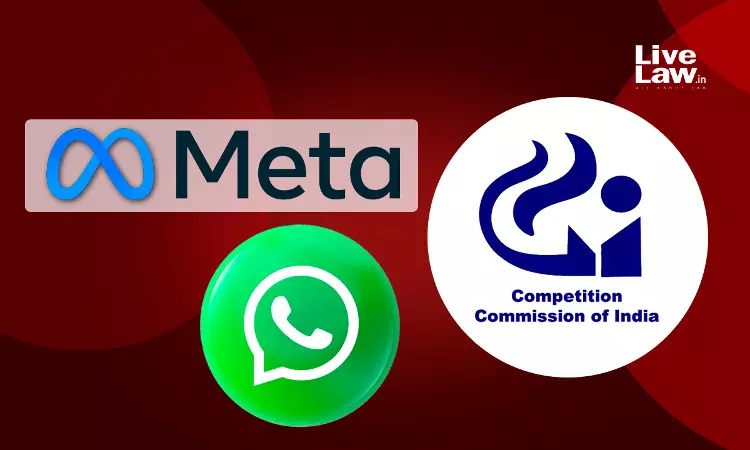WhatsApp Privacy Policy Case: Overlap in Data Privacy–Competition Issues Doesn't Curb CCI's Powers, says NCLAT
Sahyaja MS
4 Nov 2025 7:21 PM IST
The National Company Law Appellate Tribunal (NCLAT) at Delhi on Tuesday reaffirmed that the overlap between privacy and competition issues does not take away the powers of the Competition Commission of India (CCI) in investigating and addressing abuse of dominance by firms, even when data protection concerns are also involved. Observing that “Competition law and data protection law operate...
The National Company Law Appellate Tribunal (NCLAT) at Delhi on Tuesday reaffirmed that the overlap between privacy and competition issues does not take away the powers of the Competition Commission of India (CCI) in investigating and addressing abuse of dominance by firms, even when data protection concerns are also involved.
Observing that “Competition law and data protection law operate as complementary, not exclusive frameworks", the tribunal upheld the Rs 213 crore penalty imposed on Meta Platforms and WhatsApp LLC for abusing its dominance in the market for OTT messaging apps through smartphones in India by forcing users to accept unfair data-sharing terms and using data to block competitors.
It, however, set aside the five-year ban on sharing WhatsApp user data for advertising purposes, ruling that the restriction was unnecessary once users were given the option to freely opt in or out.
A bench comprising Chairperson Justice Ashok Bhushan and Technical Member Arun Baroka observed that while data protection laws focus on protecting individuals' personal data and consent, competition law addresses how dominant companies may misuse both personal and non-personal data to distort markets, restrict consumer choice, or engage in exploitative or exclusionary practices.
"The mere overlap in subject matter may not exclude CCI's jurisdiction, and furthermore, the Hon'ble Supreme Court and Hon'ble Delhi High Court, have already affirmed that CCI can examine competition harms even when privacy issues are also involved", the bench added.
The case arose from WhatsApp's 2021 Terms of Service and Privacy Policy update. The CCI found that WhatsApp, through Meta, abused dominance in the “OTT messaging apps through smartphones in India” market by coercing users to accept expanded data sharing to other Meta platforms and leveraging this data in the online display advertising market.
Subsequently, on November 18, 2024, it imposed a Rs 213 crore penalty on the platforms for abusing its dominance.
WhatsApp and Meta argued that CCI lacked jurisdiction, claiming the issues were purely about privacy and consent under the Digital Personal Data Protection Act, 2023 (DPDP Act) and the Information Technology (Reasonable Security Practices and Procedures and Sensitive Personal Data or Information) Rules, 2011 ('SPDI Rules' (SPDI Rules). The CCI countered that competition law addresses misuse of data to distort markets, distinct from privacy regulation.
The NCLAT held that CCI can venture into these investigations as long as it addresses misuse of data for distortion of market. It also held that privacy is a key non price factor that needs to be considered at par with price factors in these disputes.
"Therefore, we don't find any disagreement with the argument that reduction of privacy as a non-price factor in competition at par with other non price attributes would be fully in consonance with the letter and spirit of the Competition Act. We find argument convincing that privacy loss can be considered service quality reduction and excessive data collection amounts to degradation of service quality", it said.
The CCI had found that Meta leveraged WhatsApp's dominance to protect its position in online display advertising under Section 4(2)(e). The NCLAT set aside this finding, noting that both Meta and WhatsApp are two different entities and, as per law, Section 4(2)(e) cannot be applied across distinct legal entities.
The tribunal, however upheld other directions of the commission aimed at restoring user choice, including detailed explanations of data sharing, mandatory opt-out options, and compliance for future updates. However, the 5-year ban on sharing user data for advertising was struck down
“We note that this remedy is contestable as the rationale for the duration of 5 years ban was missing altogether in the Impugned Order. The justification that such a period would "revive competitive conditions" cannot meet the threshold required by law as claimed by the Appellants”
The NCLAT partly allowed the appeals, upholding CCI's findings under Sections 4(2)(a)(i)(unfair conditions) and 4(2)(c) (restricting market access) setting aside Section 4(2)(e) of the Act.
Case Title: WhatsApp LLC v CCI
Case Number: Competition Appeal No. 1 of 2025
For Appellant: Senior Advocates Mukul Rohatgi and Arun Kathpalia, with Advocates Yaman Verma, Shashank Mishra, Aisha Khan, Shivek Endlaw, Parv Kaushik, Aditya Dhupar, Vedika Rathore, Devanshi Singh, Udit Dedhiya, Bani Brar and Tahira Kathpalia
For Respondents: Senior Advocates Balbir Singh with Advocates Samar Bansal, Manu Chaturvedi, Bhivali Shah, Vedant Kapur, Devika Singh Roy Chowdhary, Ahmed Jamal Siddiqui, Abhishek Gandhi, Kshitiz Kishor Rai for CCI
Senior Advocates Kapil Sibbal and Amit Sibal Sr. Advocates with Advocates Naval Chopra, Supritha Prodaturi, Akshi Rastogi, Ms. Parinita Kare, Mr. Aatmik Jain, Ritika Bansal, Anupma Reddy Eleti, Aparajita Jamwal and Mr. Saksham Dhingra for Meta
Advocates Abir Roy, Vivek Pandey, Aman Shankar, Sasthibrata Panda, Biyanka Bhatia and Shreya Kapoor for Internet Freedom Foundation
Click here to read/download judgment



